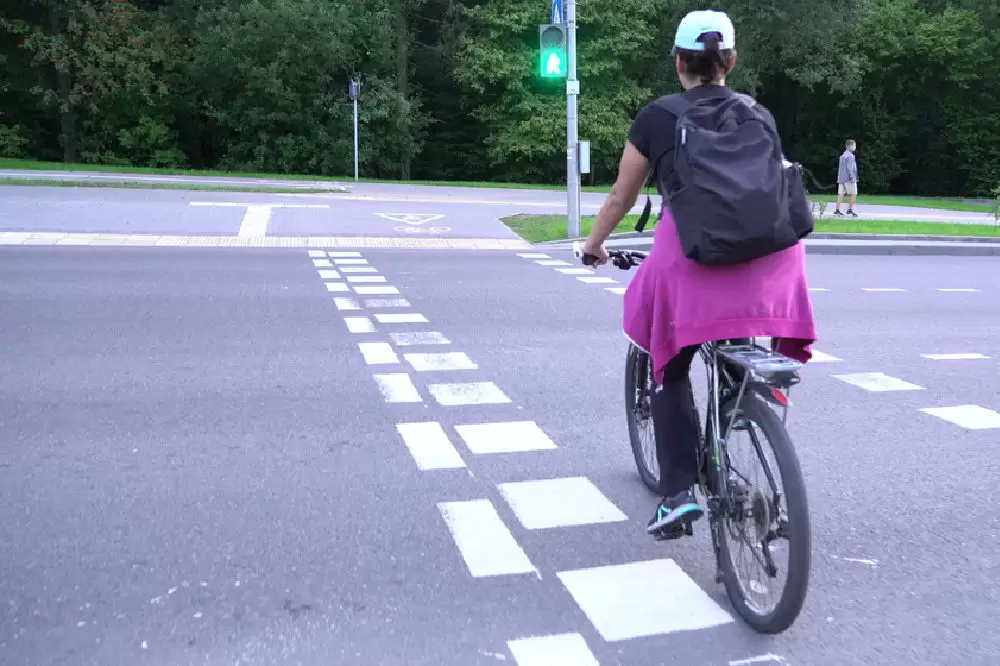(Transatlantic Today) —Cycling is a most famous mode of transportation and exercise enjoyed by people of all ages. It’s an eco-friendly and health-conscious way to get around. However, when Alcohol enters the picture, the situation takes a serious turn. Many may wonder, “Is biking drunk illegal?” In this article, we will delve into the legalities surrounding biking under the influence of Alcohol or Is Biking Drunk Illegal: Cycling Under the Influence
Is biking drunk illegal? The simple answer is yes; biking under the influence of Alcohol or drugs is indeed illegal in most places. Just as it’s unlawful to drive a car while intoxicated, the same rules apply to cycling. The key factor is whether the individual is fit to ride and has proper control over the bicycle.
Whether you’re pedaling on a footpath or navigating the roads, being under the influence poses a legal risk. If your ability to control the bicycle is compromised due to intoxication, you could be charged with a criminal offense.
Police Authority and Testing
If you’re pulled over by a police officer who suspects you’re cycling under the influence, they can ask you to provide a breath, blood, or urine sample. However, unlike in driving cases, they cannot force you to take the test. While refusal might not directly lead to evidence against you, it’s important to remember that it’s always safer to refrain from cycling if you’ve been drinking.
Grey Areas: Beyond Intoxication
The legal landscape isn’t solely focused on proving intoxication. Even if you manage to escape a charge of cycling under the influence, other offenses might come into play. If your cycling behavior is deemed dangerous, careless, or inconsiderate, you could still face penalties.
For instance, running a red light, regardless of your sobriety, can lead to a Fixed Penalty Notice. The laws regulating road usage apply to all, and violating them can have financial consequences.
Consequences: What’s at Stake?
Cycling under the influence comes with potential legal penalties that can impact your wallet. If you’re found guilty of cycling while intoxicated, you could face a fine of up to £1,000. This applies similarly to careless or inconsiderate cycling. In cases of dangerous cycling, the fine can reach up to £2,500.
Importantly, no points will be added to your driving license if you possess one, as these offenses are specific to cycling.
Prioritizing Safety: The Risks of Intoxicated Cycling
Above all, the most important reason to avoid cycling under the influence is safety. Alcohol impairs coordination, reaction times, and decision-making. It can cause inhibitions to vanish, leading to risky behavior on the road. The ability to control a bicycle can be severely compromised under the influence.
Recent research underscores the gravity of the situation. Intoxicated cyclists face a significantly higher risk of getting injured in cycling accidents compared to sober cyclists. The impaired state of mind and body increases the likelihood of collisions and mishaps, endangering not only the cyclist but also pedestrians and other road users.
In Conclusion: Is Biking Drunk Illegal?
Is biking drunk illegal? Yes, it is. While the legal penalties for cycling under the influence are noteworthy, the emphasis should always be on personal safety and the well-being of others. Drinking and cycling simply don’t mix. The potential loss of control, coupled with impaired judgment, creates a dangerous situation on the roads.
When considering hopping on your bike after having a few drinks, it’s vital to think beyond legal consequences. Prioritize your safety, the safety of others, and responsible road use. Choosing alternative transportation methods or delaying your ride until you’re sober is a small sacrifice compared to the potential hazards of intoxicated cycling. Remember, the key to an enjoyable ride is a clear mind and the ability to react swiftly to changing road conditions.drugs, the potential consequences, and why it’s crucial to prioritize safety over risky choices.


























